My nighttime routine was ruining my sleep — here's how I fixed it
And you're probably making the same three mistakes I was
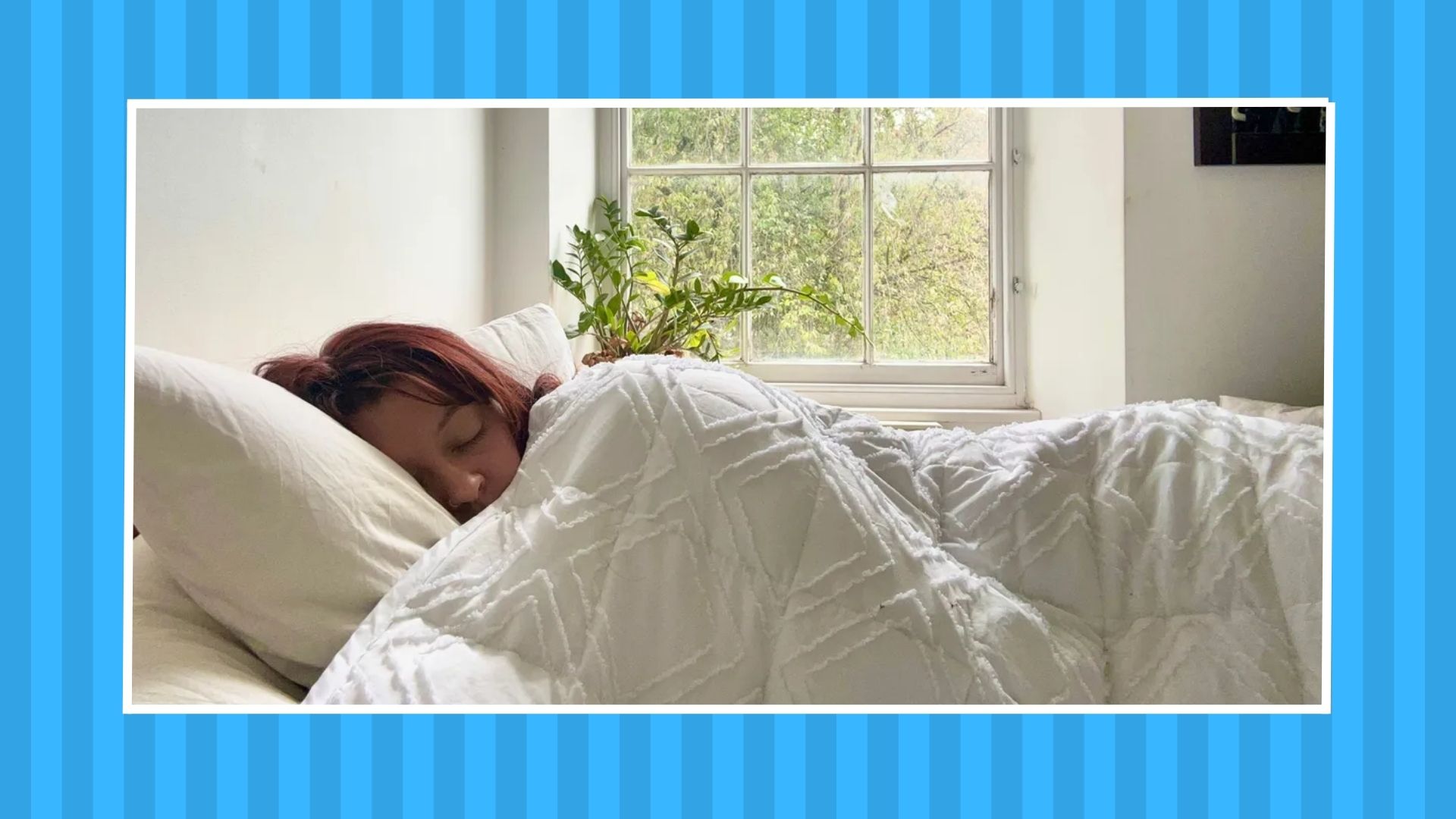
Here at Tom’s Guide our expert editors are committed to bringing you the best news, reviews and guides to help you stay informed and ahead of the curve!
You are now subscribed
Your newsletter sign-up was successful
Want to add more newsletters?

Daily (Mon-Sun)
Tom's Guide Daily
Sign up to get the latest updates on all of your favorite content! From cutting-edge tech news and the hottest streaming buzz to unbeatable deals on the best products and in-depth reviews, we’ve got you covered.

Weekly on Thursday
Tom's AI Guide
Be AI savvy with your weekly newsletter summing up all the biggest AI news you need to know. Plus, analysis from our AI editor and tips on how to use the latest AI tools!

Weekly on Friday
Tom's iGuide
Unlock the vast world of Apple news straight to your inbox. With coverage on everything from exciting product launches to essential software updates, this is your go-to source for the latest updates on all the best Apple content.

Weekly on Monday
Tom's Streaming Guide
Our weekly newsletter is expertly crafted to immerse you in the world of streaming. Stay updated on the latest releases and our top recommendations across your favorite streaming platforms.
Join the club
Get full access to premium articles, exclusive features and a growing list of member rewards.
If you’ve been lying awake at night, staring at the ceiling, you may be making the same mistakes I used to make. And I wouldn’t be surprised, considering how common they are.
The importance of a nighttime routine is often underestimated, with people (including myself last year) brushing it off as something only children need. But sleep hygiene, the habits we have and the environment we sleep in, can make or break the rest we get.
After struggling to fall asleep and continually waking up at night, I knew I needed a change. Without realizing, I was sabotaging my sleep with my nighttime routine. And, if you’re also struggling, you might be doing the same.
Here’s what I changed and how I now sleep through the night.
3 nighttime routine mistakes — and how I fixed them
1. Eating dinner too late
Without kids, my husband and I are free to schedule our evening however we like. While we love the freedom, it does often mean that our dinner time can be as late as 9pm.
The post-dinner slump then coincides with bedtime, which I thought would be a great benefit, helping me fall asleep fast.
But I was wrong.
While I may have slipped into a food coma pretty quickly, I was often woken out of it abruptly just an hour or two later. And it’s no surprise why.
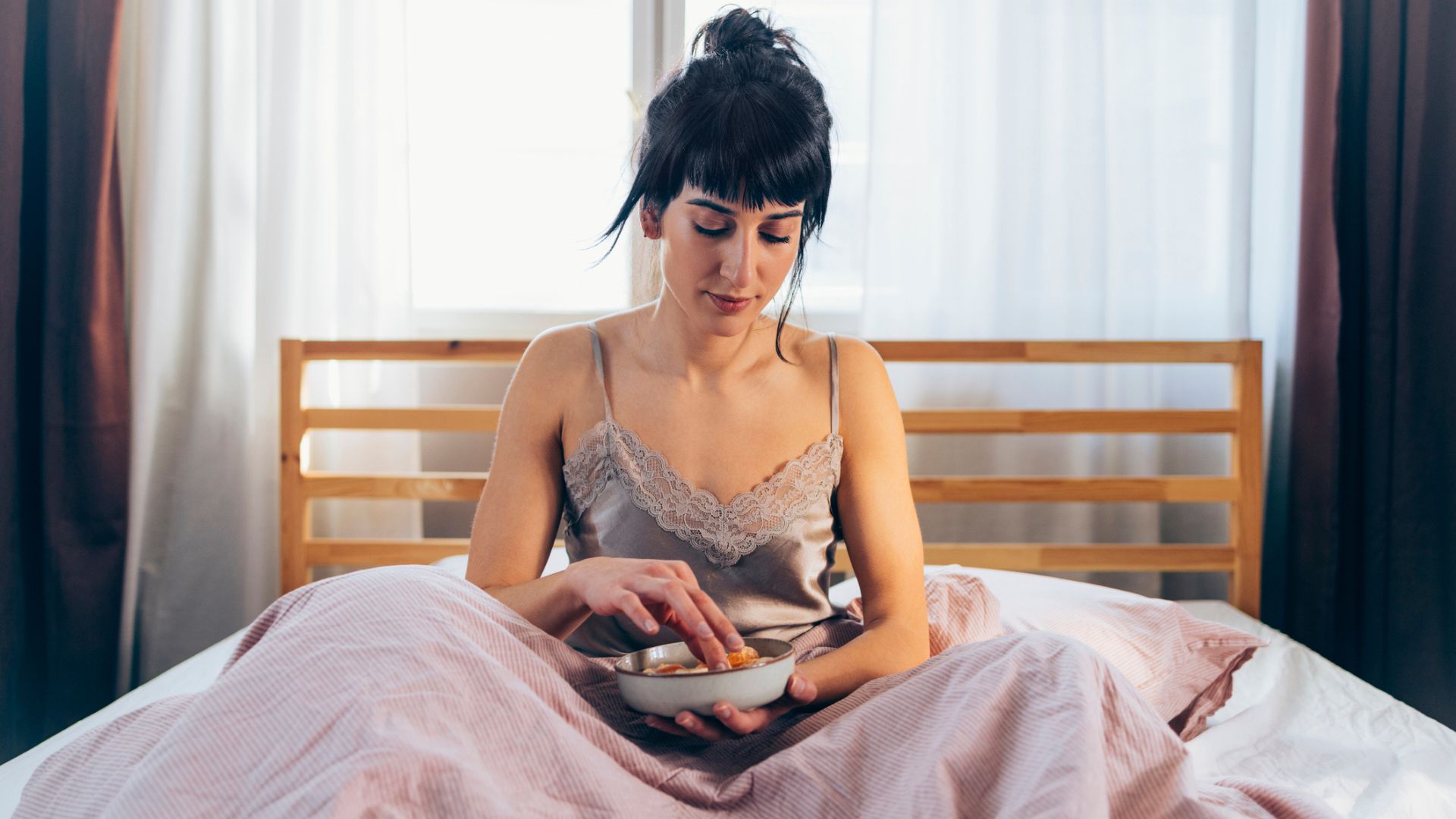
"Large meals increase core body temperature and activate digestion — both of which can delay sleep onset and lead to more nighttime awakenings," explains Dr. Leah Kaylor, a clinical psychologist who specializes in sleep and trauma.
In order to fall asleep, our body temperature needs to drop and active digestion can stop that from happening. Plus, as our body digests, our blood sugar levels are likely to increase which can also lead to nighttime awakenings and energy peaks.
How to fix it: Luckily, this was an easy fix. Eat earlier. But to really improve your sleep, you can take some steps to make your diet more sleep friendly.
Try the following:
- Increase your protein intake: Studies have shown that eating more protein can increase the amount of deep sleep you get each night.
- Eat three balanced meals a day: By keeping your meals regular, your energy will be better regulated, making it easier to fall asleep and sleep through the night.
- Avoid sugar and caffeine: Sneaky sources of caffeine can include dark chocolate, energy bars and even certain bottled water. Be sure not to consume caffeine after midday and limit your sugar intake — especially in the evening.
Once I took these steps, I could fall asleep easily and sleep through the night. Occasionally, I still eat dinner late and I notice every time how much my sleep quality deteriorates.
2. Watching TV in bed
Now this one was difficult to give up, but I knew it was wrecking my sleep. Like many people, I love curling up in front of the TV at night as a way to relax — and let me be clear, there’s nothing inherently wrong with that.
This can automatically make your brain more active when you're in bed
However, as a hangover from living in a tiny apartment, I was used to watching TV in bed before I went to sleep. It’s something many people do and it’s one of the most common nighttime routine mistakes I see.
Using your bedroom for anything else other than sleep, especially in the evening, can stop you from associating the room with relaxation, making it difficult to wind down enough to fall asleep.
Mattress Firm sleep advisor, Dr Jade Wu, says that "this can automatically make your brain more active when you're in bed."
My personal favorite thing to do was to fall asleep with the TV on. But that’s also a big no no. The TV "will interrupt your sleep more, keeping you in lighter stages of sleep, and potentially causing stressful dreams, even if you aren't conscious of it," explains the doctor.
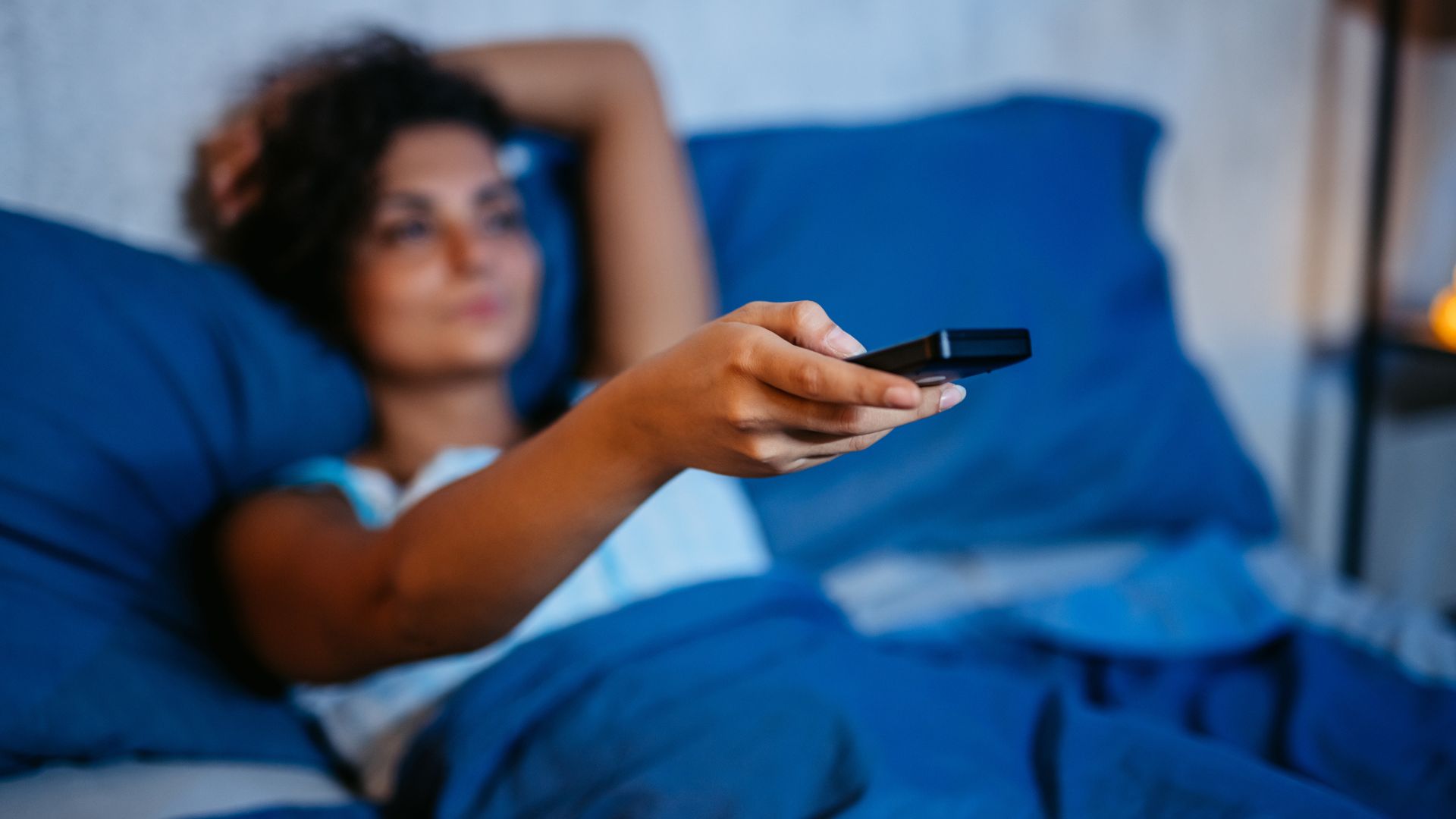
How to fix it: While I still watch TV in the evenings, I make sure it’s in the living room. That means that when it’s time for bed, my room is only for reading. With dimmed lights and a book on the bedside table, it’s the perfect place to unwind with no external stimulation that’ll keep me awake.
Take the following steps to help build a strong association between sleep and your bedroom:
- Don’t work in your room: Working from home is great, and a cheeky day in bed is needed sometimes. But it’s important to resist the temptation. You’ll likely start associating your bedroom with feeling alert or stressed.
- Keep it uncluttered, clean and tidy: A cluttered bedroom leads to a cluttered mind. If you’re surrounded by things that need tidying away, you’re essentially sleeping in one big to-do list.
- Make sure you’re comfortable: Choosing the best mattress for your sleep style and preferences will help you sleep peacefully night long. Also consider whether you’re sleeping on the right pillow for your sleeping position.
3. Brushing your teeth right before bed
Okay, I know this one sounds weird. But stay with me. Like almost every other person on our planet, when I felt sleepy enough I would get up and go to the bathroom to splash my face with some water and brush my teeth.
Big mistake.
These activities can wake you up and undo all of your hard work unwinding for the evening. And that’s exactly what was happening to me.
Half asleep, I trudged to the bathroom. But after my nightly ablutions, I walked back to my bedroom awake and stimulated, delaying how quickly I could fall asleep.
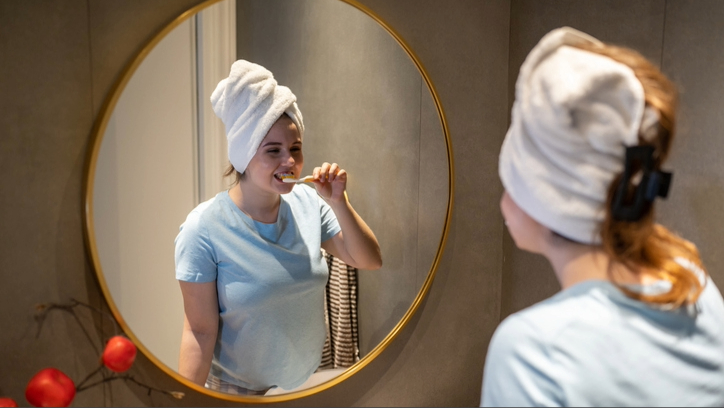
How to fix it: "Before you start relaxing for the evening, make sure you have done everything you usually do before bed, like getting into your PJs and brushing your teeth,” James Wilson, a sleep expert for MattressOnline, explains.
Now that I’ve started doing this, I can let myself fall asleep whenever I’m ready, rather than getting up and out of bed to prepare for the night — and it's certainly helping me fall asleep faster.
Other evening habits I stick to for better deep sleep
Alongside fixing those three nighttime routine mistakes, there were a few other bad habits I needed to kick to make sure I was enjoying quality, deep sleep night after night.
I’ve stopped scrolling on my phone
I noticed that my late-night phone time was increasing my nighttime anxiety a lot. The stimulation of constant Instagram Reels and news stories meant my mind was too stimulated to wind down and relax.
Now, I make sure that at least 30 minutes before I intend to fall asleep, I don’t open any social media or news apps.
Instead, reading helps to slow my mind down. In fact, picking up a book can reduce stress by 68%, so it’s a great pre-bed habit to pick up.
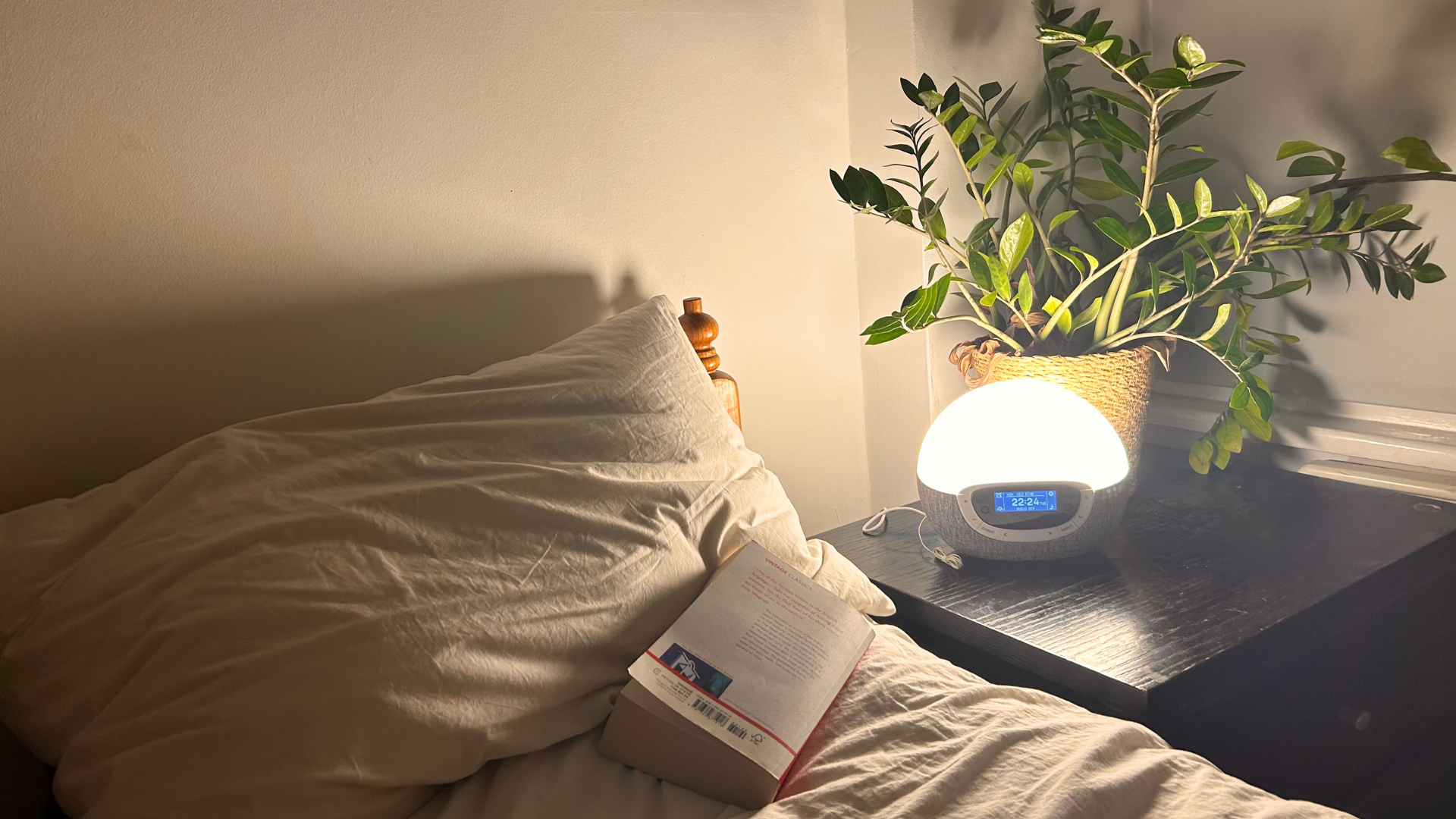
I go to bed at the same time every day
My bedtime used to fluctuate a lot. Some nights, I’d pass out at 9.30pm, other nights I’d be up until 1am. But that meant my circadian rhythm (also known as a body clock) was unregulated.
This led to peaks and dips in my energy throughout the day, as well as difficulty falling asleep some nights and lots of groggy mornings.
Now, I keep my sleep schedule consistent. While it may vary by 30 minutes or so (and slightly more at the weekend), I’ve noticed my energy levels are a lot more stable.
This is because the sleep hormones that determine when we’re tired or energized are being released at the right times throughout the day (thanks to a more well-regulated circadian rhythm).
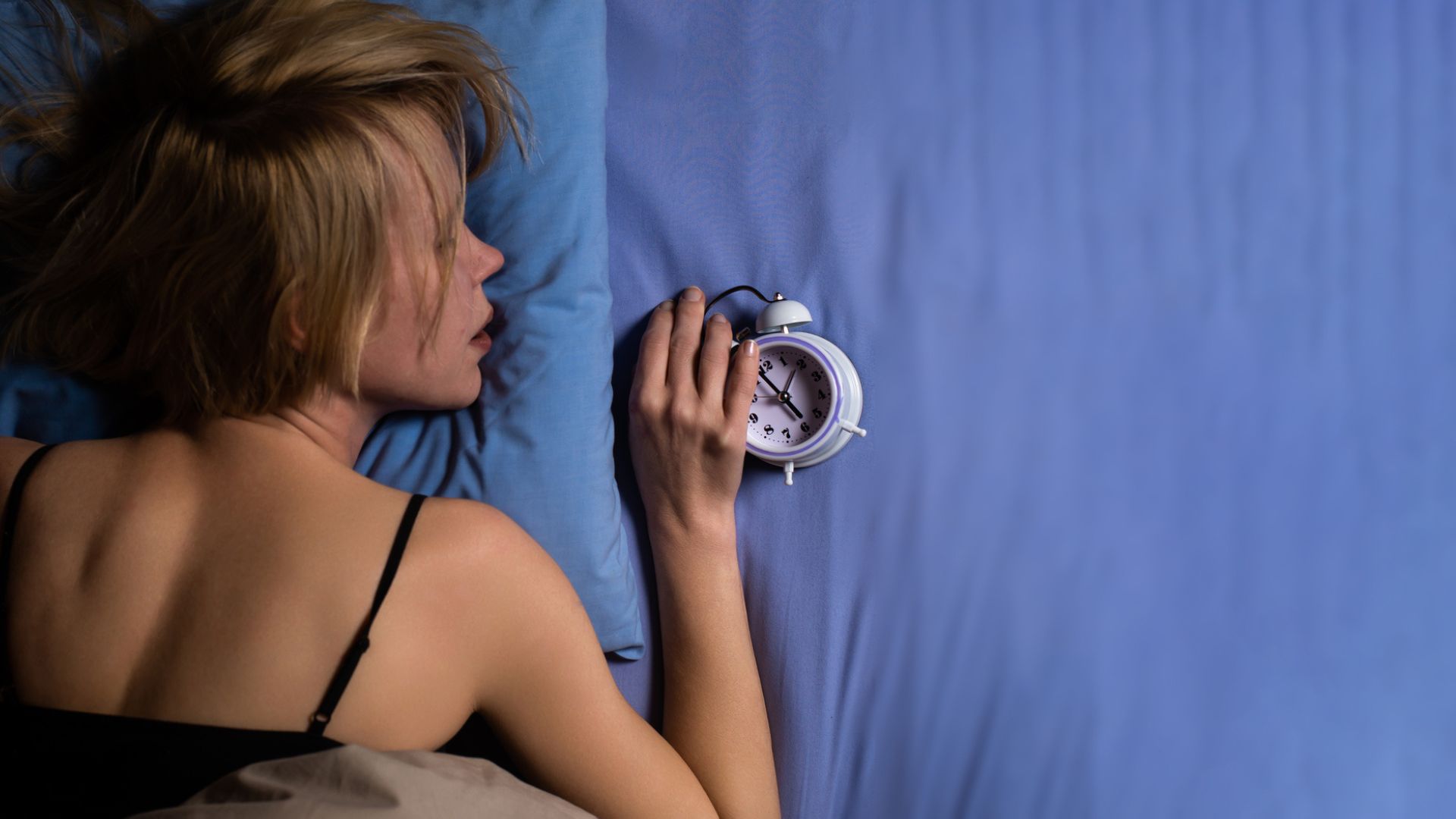
I end the day with a warm bath
I’ve found an evening bath is the perfect addition to my nighttime routine. Firstly, it relaxes my muscles and eases any tension I’ve held throughout the day.
Secondly, it offers a time for me to fully relax without too much stimulation. Sometimes, I’ll have my book with me, other nights I’ll just close my eyes and process the day.
And lastly, moving from a warm bathroom to a cooler bedroom drops my core body temperature, which is a key signal to my body and brain that it’s time to fall asleep.

Lauren is an experienced writer and editor in the health and lifestyle industry and has led many campaigns and projects that deliver news, advice, and research on all things sleep. As the Sleep Features Editor for Tom’s Guide, Lauren writes, commissions and edits sleep and mattress content, from in-depth how-tos in sleep and mattress health to interviews with doctors and neuroscientists on the latest news in sleep. Lauren regularly tests new sleep tech and accessories to evaluate their effectiveness for getting good quality sleep and easing specific sleep struggles like nighttime anxiety. Alongside this, Lauren reports on the best mattress brands out there, like Helix, Saatva, and DreamCloud, helping readers find the right mattress for them and the best deals on them.
You must confirm your public display name before commenting
Please logout and then login again, you will then be prompted to enter your display name.
 Club Benefits
Club Benefits










